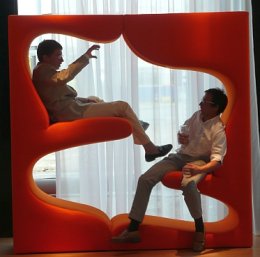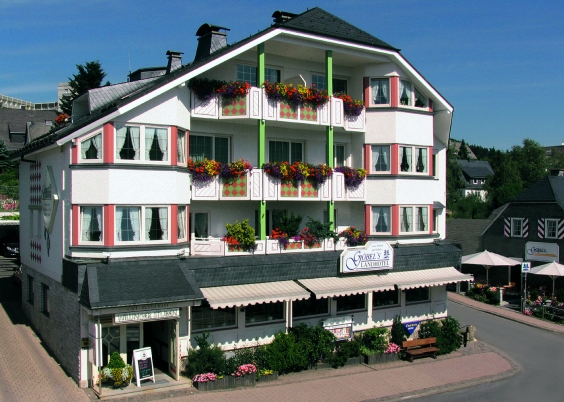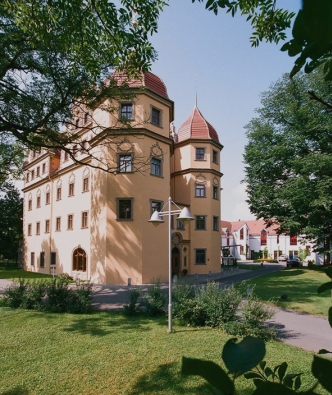
News & Stories
Vienna. Previous research for the UK and US markets suggested that design hotels perform better than traditional, “non-design” hotels. This is also one of the key findings of a recent survey conducted throughout Europe. Does this imply that design hotels are consequently more attractive real estate investments from an investor’s perspective? The answer is: yes, if one strictly follows certain guidelines. A summary and the survey in detail.
London. Franchising in Europe is still much less developed than it is in the USA, but it is gaining ground. Also, Franchising in Europe is not as uniform or as standard as it is in the USA. The largest number of franchise systems operating within Europe were in Germany, the UK, France, Italy and Spain. Germany, the UK and France showed ‘domestic’ systems mostly, whereas Denmark, Belgium and Austria imported most of their franchise systems. As Europe consists of many small markets and brand penetration rates are low, there is a huge potential for franchisors. Europe presents more opportunities than threats, experts say. These are findings of the new and first HVS "2010 Hotel Franchise Fee Guide - Europe". The report in detail.
Willingen. The Goebel hotel group, headquartered in the north Hessian town of Willingen, is a German picture-book family business. Last year, the group's eight hotels and two inns had a turnover of 20 million euros. Further take-overs cannot be ruled out. The head of business looks after everything in person. This is one part of the success.
Cologne/Munich. Last week in Munich, the waves were almost as high as in Cologne in April: As of January 2011, the Bavarian capital is to introduce a bed tax similar to that planned for Cologne. In both cases, the Social Democrats and the Green Party put forward the tax. The tax for Munich was enacted two days ago.
Bern. The court of cassation in Zurich has rejected the declaration of nullity of hotelleriesuisse in the dispute with the proprietors' association GastroSuisse. Now hotelleriesuisse is trying everything to protect the Swiss hotel stars based on a unified hotel classification system and is taking the ruling to the federal court.
Leipzig. Following the acquisition of five former Sonnenhotels at the end of last year, Ambiente Privathotels, established in 2008, now counts 12 hotels to its portfolio with a total of 1,600 beds. The young hotel group is headquartered in Leipzig and has specialised in German-Russian business relationships. The group also keeps an eye on smaller and medium-sized resorts in financial difficulty.
Dubai. At the "Arabian Travel Market" last week, the Dubai Department of Tourism and Commerce Marketing announced the launch of its new hotel classification which will be implemented from this year-end. Hospitality properties will continue to be rated on the scale of one to five stars, but new categories have been added to highlight their uniqueness.
Frankfurt. USALI, the abbreviation for Uniform System of Accounts for the Lodging Industry, is an internationally accepted accounting system and has become a standard system in the hotel industry. This image is so fixed among investors that they actually overlook new details. Hotel consultants seek details more often and therefore one of these consultants wants to point out slight differences concerning "GOP". It cannot always be compared to "IBFC" or "adjusted GOP".
Berlin. Unsettled travellers, over-stretched hoteliers, annoyed travel managers: After 15 years of discussions, it seems that no-one had really expected Germany's hotel industry to be granted a reduction in VAT rates, despite many positive political signals to the contrary. The move came quite literally overnight. For hotel stays, the applicable VAT rate was reduced from 19 to 7 percent; for catering services, the rate stayed at 19 percent. The surprise was perfect, and the ensuing chaos large – both on part of the hotels as well as corporate clients. Between the decision to reduce VAT rates and the entry into force of the new rules were only 13 days, including the Christmas break. The German Ministry of Finance came under enormous pressure to publish guidelines to accompany the change. In the first run-up, the "tax break" provided by federal government caused much upheaval in the sector. At the annual conference of the German Travel Management Association in Berlin just two weeks ago, all those affected discussed the change and its implementation with unusual frankness. Industrial associations promised to speak more with each other prior to such changes in future. A summary of the chaos.
Vienna. The Austrian Hotelier Association examined online ranking portals taking regional criteria into account for the first time. Austria's hotels receive special credit: they have been rated above average, independently of their prices.






